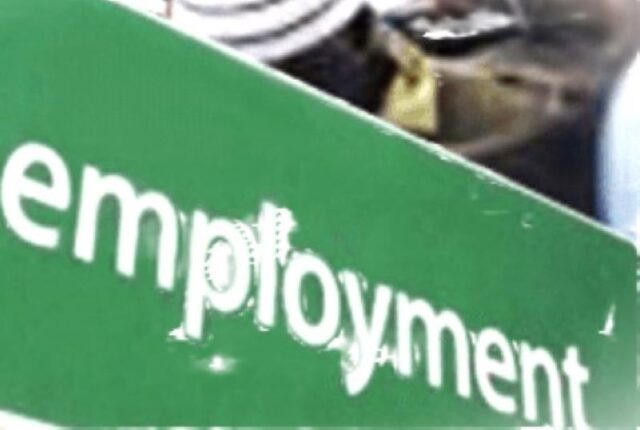…According to the CPPE, the new policy has far reaching implication for investment in the country, and the time line for compliance is too short.
…The policy gave barely four weeks for companies to comply.
MON, MAR 04 2024-theGBJournal| The Centre for the Promotion of Private Enterprise (CPPE) has expressed serious concerns about the recent introduction by government of the Expatriate Employment Levy (EEL) with dual purpose of promoting the localization of skills and economic growth.
While the CPPE lauded the broad objective of the policy, it appealed to government to review the policy and undertake broader consultation to fine tune it to ensure that it does not hurt genuine investors in the country.
”It is also important to worry about the implications of possible diplomatic reciprocity, especially for our diaspora community, the CPPE said.
The CPPE highlighted the extant legislations and regulations with similar objectives, which includes the expatriate quota which empowers the Nigeria Immigration service to give approvals to companies for expatriate staff engagement only when there is no local capacity.
Companies currently pay $2000 per expatriate annually. This is an equivalent of about N3 million at current exchange rate. The new levy is $10,000 for staff and $15,000 for directors, which translates to N15 million and N22.5 million respectively.
There is also the the National Content Act for the oil industry which offers tremendous opportunities for indigenous investors to offer services to oil and gas companies.
”Indigenous capacity in the sector had grown remarkably since the enactment of the act,” the CPPE noted.
Again, there are presidential Executive Orders 3 and 5 which directed the MDAs to give first right of refusal to indigenous contractors, service providers for procurement purposes.
”The point to stress is that implementation of these legislations and regulations has been very weak thus affecting the outcomes. The problem is not lack of policies, but the institutional structure to deliver results,” the CPPE said.
According to the CPPE, the new policy has far reaching implication for investment in the country, and the time line for compliance is too short.
The policy gave barely four weeks for companies to comply.
”For such a major policy shift, companies needed to be given minimum of six months. It is only fair and just to do so. This would be very disruptive for their businesses, plans and projections.
Some of the companies affected are major investors that have investment billions of dollars and have been in Nigeria for decades. This administration, being an investment friendly regime, should give companies more time. the CPPE said.
It says the country needs more direct investors than portfolio investors at this time. But ironically, both foreign direct investors and domestic direct investors would be more negatively impacted than portfolio investors.
The economy needs more investors in the real economy – oil and gas, manufacturing, infrastructure, mining, ICT, Healthcare – all of which require varying skills and competencies.
”The truth is that major FDIs will typically come with some critical staff to oversee their investments. It is imperative to give some consideration to this class of investors, given the scale of their investments which could be in billions of dollars.”
The challenge of influx of foreigners, especially the unskilled ones are more pronounced in some sectors than others.
Vulnerable sectors include construction, distributive trade, hospitality and logistics.
The CPPE says the policy should be targeted at these more vulnerable sectors.
It also highlighted the ”serious implications” for diaspora Nigerians.
The policy may trigger reciprocal actions from other countries and this may affect Nigerians in diaspora.
There are currently over 17 million Nigerians in various countries around the world doing extremely well in the fields of Education, Medicine, Health, Sports, Media & Entertainment, Leadership & Politics, Finance, Science & ICT, Transportation, Tourism, Industry and Agribusiness.
”This is a pool of very valuable external sector assets for us as country. We have the largest diaspora population in Africa. We also have the highest diaspora remittances on the continent, generally in excess of $20 billion. All of these could be at risk as a result of this policy.
If the reciprocity policy is activated in any of their host countries, the effect on our diaspora citizens will be very devastating.”
Nigeria occupies a leadership position in Africa and very well respected. President Bola Ahmed Tinubu is the current chairman of ECOWAS. This policy does not make an exception for our African brothers and neighbours.
This is coming at a time when the African Continental Free Trade Area [AfCFTA] is gaining traction.
”The policy could be a major setback for the continental economic integration vision. Besides many of our citizens are in many African countries. They may be victims of a reciprocal actions by other African countries,” the CPPE said.
X-@theGBJournal|Facebook-the Government and Business Journal|email:gbj@govbusinessjournal.com|govandbusinessj@gmail.com










